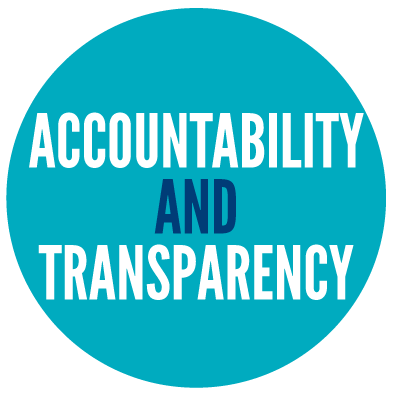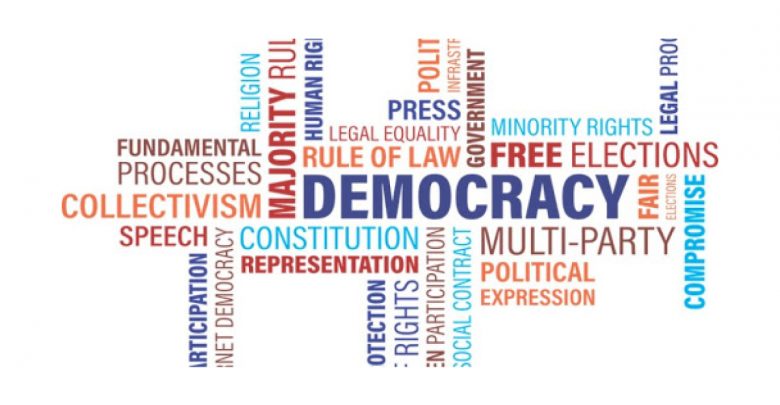The Importance of Transparency and Accountability in Politics
These two principles are the cornerstones of a healthy democracy, ensuring that the government remains responsive to the needs and desires of its citizens.

The Crucial Role of Transparency and Accountability in Politics
In a world where political decisions affect the lives of millions, if not billions, the importance of transparency and accountability in politics cannot be overstated. These two principles are the cornerstones of a healthy democracy, ensuring that the government remains responsive to the needs and desires of its citizens. In this blog post, we will delve into why transparency and accountability are vital in politics and how they contribute to the overall well-being of a society.
Transparency: Shedding Light on Decision-Making
Transparency in politics refers to the openness and accessibility of government actions and decisions to the public. It entails making information, processes, and data available to citizens, enabling them to understand how decisions are made and how resources are allocated. Here are some reasons why transparency is indispensable in politics:
Informed Citizenship: Transparency allows citizens to make informed decisions. When people have access to information about government policies and actions, they can better understand the implications of those decisions on their lives, communities, and the nation as a whole.
Preventing Corruption: Transparency is a powerful deterrent against corruption. When government actions are open to scrutiny, it becomes more challenging for public officials to engage in corrupt practices, as they know they can be held accountable.
Enhancing Trust: Trust is the foundation of any functional democracy. Transparent governance fosters trust between citizens and their government. When people believe their government is acting openly and honestly, they are more likely to participate in the democratic process.
Effective Decision-Making: Transparency leads to better decision-making. When policymakers have access to accurate and comprehensive information, they can make more informed choices that benefit society as a whole.
Accountability: Holding Leaders Responsible
Accountability goes hand in hand with transparency and refers to the mechanisms in place to hold government officials responsible for their actions and decisions. Here's why accountability is indispensable in politics:
Checks and Balances: Accountability is essential for the system of checks and balances to function effectively. It ensures that no branch of government becomes too powerful or immune to oversight.
Deterrence: Knowing that their actions will be scrutinized and they may face consequences for wrongdoing, public officials are less likely to engage in corrupt or unethical behavior.
Public Confidence: Accountability strengthens public confidence in government. When citizens see that leaders are held accountable for their actions, they have more faith in the democratic system.
Fairness and Justice: Accountability promotes fairness and justice. It ensures that those who abuse their power or engage in illegal activities face legal consequences, reinforcing the idea that no one is above the law.
Transparency and Accountability in Practice
To illustrate the importance of transparency and accountability in politics, let's consider a few real-world examples:
Freedom of Information Acts: Many countries have enacted Freedom of Information Acts that grant citizens access to government records and documents. These laws empower individuals to request information, promoting transparency and openness.
Election Monitoring: International organizations often monitor elections to ensure they are conducted fairly and transparently. This external oversight helps maintain the integrity of the democratic process.
Whistleblower Protection: Whistleblower protection laws encourage individuals within the government or organizations to expose corruption or misconduct without fear of retaliation, contributing to accountability.
The Challenges and Obstacles to Transparency and Accountability
While the importance of transparency and accountability in politics is undeniable, it's crucial to acknowledge the challenges and obstacles that can hinder their effective implementation. Some of these challenges include:
Secrecy and National Security: Governments often cite national security concerns as a reason for limiting transparency. While some secrecy is necessary to protect the nation, it can be abused to conceal illegal activities or human rights abuses.
Political Will: Achieving true transparency and accountability requires political will. In some cases, politicians may resist these principles to maintain their grip on power or protect their interests.
Lack of Resources: Some governments, particularly in developing countries, may lack the resources or infrastructure to establish robust transparency and accountability mechanisms.
Resistance to Oversight: Public officials may resist oversight and accountability measures, making it challenging to hold them responsible for their actions.
Complexity of Information: Government processes and decisions can be highly complex. Ensuring that the information is accessible and understandable to the public is a significant challenge.
Promoting Transparency and Accountability
Despite these challenges, it's essential to continue striving for transparency and accountability in politics. Here are some ways to promote these principles:
Education and Awareness: Educate citizens about the importance of transparency and accountability. Informed citizens are more likely to demand openness from their government.
Strong Legal Framework: Enact and strengthen laws that support transparency and accountability. This includes Freedom of Information Acts, whistleblower protection laws, and campaign finance regulations.
Independent Oversight: Establish independent oversight bodies, such as ombudsman offices and anti-corruption agencies, to monitor government actions and investigate misconduct.
Civil Society Engagement: Encourage civil society organizations, NGOs, and media outlets to play an active role in holding the government accountable. These groups often serve as watchdogs and promote transparency through investigative reporting.
International Pressure: International organizations and foreign governments can exert pressure on countries with weak transparency and accountability standards to improve their practices.
Technological Advancements: Leverage technology to enhance transparency. Online portals, open data initiatives, and digital platforms can make government information more accessible to the public.
The Global Impact of Transparency and Accountability
The importance of transparency and accountability in politics extends beyond the borders of individual countries. In our interconnected world, the actions and decisions of one nation can have far-reaching consequences. Here's how these principles influence global dynamics:
Foreign Aid and Investment: Transparency and accountability are critical factors for foreign aid and investment decisions. Countries with strong governance systems are more likely to attract foreign support and investment.
Diplomacy and Alliances: Nations that prioritize transparency and accountability are often seen as more reliable partners in international diplomacy and alliances.
Conflict Prevention: Transparent governance can help prevent conflicts by addressing grievances and ensuring equitable resource distribution.
Human Rights: Transparency and accountability are closely linked to human rights protection. A government that is accountable to its citizens is more likely to respect and uphold their human rights.
Global Challenges: Issues like climate change, pandemics, and terrorism require international cooperation. Transparent governments are better equipped to collaborate on these global challenges.
In a world where political decisions shape our lives and future, transparency and accountability are not just buzzwords but guiding principles for a just and prosperous society. They empower citizens, deter corruption, and strengthen democratic institutions. While achieving full transparency and accountability may be challenging, the journey toward these ideals is one well worth undertaking. By promoting these principles at home and supporting them on the global stage, we can work together to build a more transparent, accountable, and equitable world for generations to come.
What's Your Reaction?















